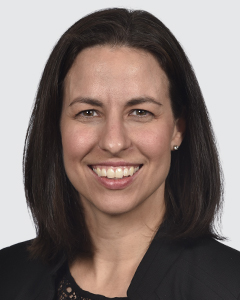A cancer diagnosis is never easy to deal with. But for young adults, there are unique challenges. Unlike their much older counterparts, young adults are still making decisions about having children, working through the early stages of their careers and moving in social circles where no one is giving much thought to cancer.
With that in mind, let’s look at five areas where these differences are most pronounced.
Fertility and Family Planning
Cancer treatments, including surgery, chemotherapy and radiation, can cause temporary or permanent damage to reproductive organs in both men and women. But treatment isn’t something that can be put off for a year or two to create a window for pregnancy and childbirth. And the reality is that someone in their 20s may not even be thinking about whether or not they want children in the next 10 or 20 years.
That’s why it’s important to have a discussion with your doctor before your treatment begins. Involving a reproductive endocrinologist can help your team collect and preserve eggs, reproductive tissue and sperm to allow you the opportunity to have your own biological children later in life.
Delayed Diagnosis
Younger people tend to be healthier and may not make regular visits to their doctor. They’re also more likely to dismiss bothersome symptoms while being caught up in their busy lives. And cancer just isn’t as common in young people, putting it lower on a doctor’s list of probable causes. All of these factors combine to make it more of a challenge to get that initial cancer diagnosis. Unfortunately, that means the cancer may have more time to grow, making it more difficult to treat.
Treatment Issues
Most cancer doctors focus on patients who fall into two groups: children and older adults. And since younger adults are less likely to get cancer, they may have difficulty finding the right combination of treatment and doctors.
A young adult with a cancer (bone sarcoma or acute lymphocytic leukemia, for example) that’s more common in children may need to involve a pediatric oncologist in their care team. But if it’s a cancer (breast or colorectal, for example) more common older people, you may benefit from an oncologist who focuses on older adults.
Some cancer treatment regimens can also vary by the age of the patient (children are often better able to handle more intense treatments), so it may be more difficult to find the ideal treatment for a particular cancer.
Social Implications
Young adults are still finding their way and place in the world. They are developing relationships with peers and romantic partners and are in the early stages of their careers and family planning. Throwing cancer and its treatment into that mix can have serious ramifications.
Again, no one wants to have cancer. But when it happens in your later years, its going be easier to find a supportive network. You will be more likely to have friends, peers and siblings who have gone through the same thing, giving them a better understanding of how your life will be impacted. It is far more difficult to be in your 20s or 30s – being forced to skip a weekend trip with friends because of your chemo treatments.
Emotional Impact
Cancer can wreak havoc with your life no matter when it appears. When it occurs earlier in life, it adds yet another stressor at a time when your identity is still being formed. It has the potential to create a wide range of emotional issues, including:
- Feelings of resentment about having cancer when others in your age group do not
- Fear of the cancer returning
- Concerns about dating, marrying and the ability to have children
- Self-esteem issues related to scars, hair loss, weight gain and other side effects from treatments
- Worries about career complications or facing discrimination at work
To cope with all of these changes and challenges, it’s important to find a supportive community – particularly if you feel like your own friends and peers aren’t able to provide it. Work with your care team to develop ideas and strategies for finding people who help you feel less isolated.
Choose to Stay in Touch
Sign up to receive the latest health news and trends, wellness & prevention tips, and much more from Orlando Health.
Sign Up for HealthBeat





